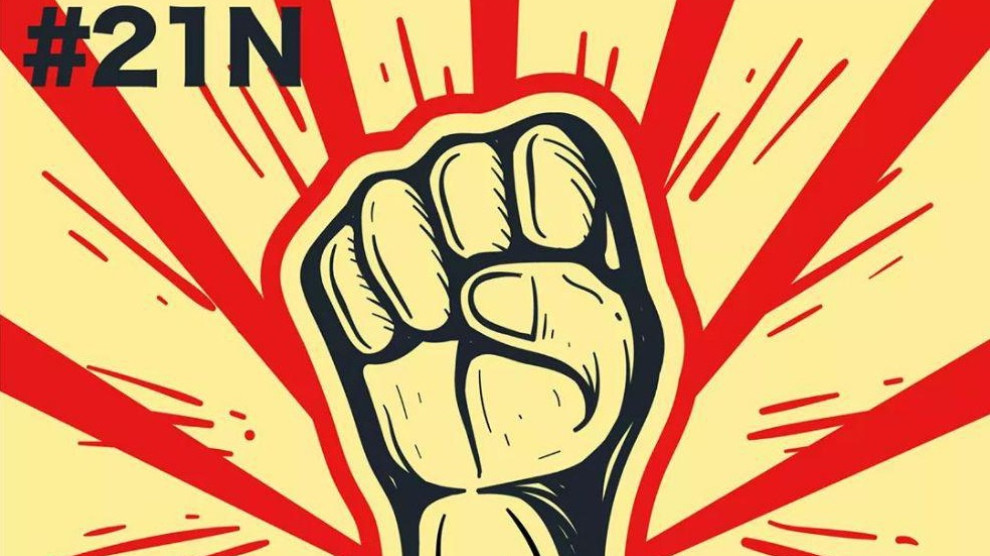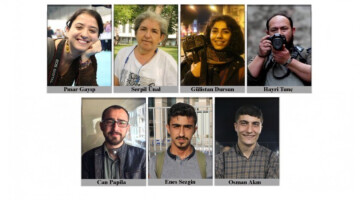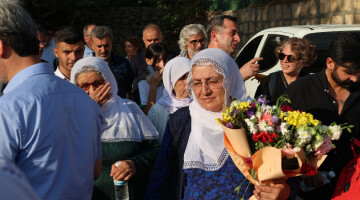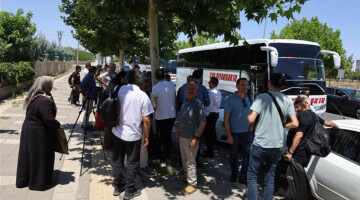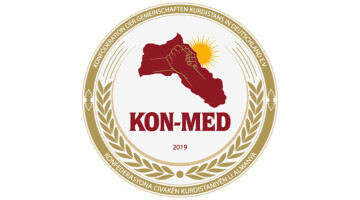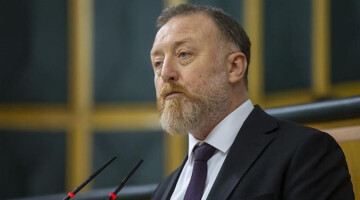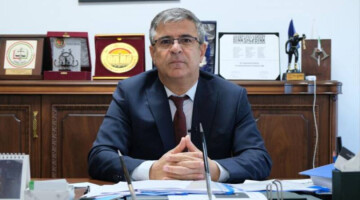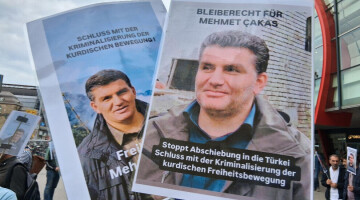Pension reform, labor reform, fracking and other measures that threaten the environment, killing of social leaders and peace defenders, the non implementation of the Peace Agreement, the death of minors in a bombing and budget for higher education are some of the reasons why Colombian will take to the streets today in many cities, joining the national strike called by unions as well as many civil society organisations.
On November 5, in the midst of a debate on the motion of censure against Defense Minister Guillermo Botero , Senator Roy Barreras uncovered the murder of 8 minors in a bombing carried out by the Armed Forces on 'dissident' armed groups. This fact led to the resignation of the minister but the decision was not enough for Colombians. After this latest event, much of the civil society has shown its growing rejection of President Iván Duque.
Currently 2.4 of the 48.2 million Colombians are in poverty and more than 600,000 people have lost their jobs in 2018.
According to the workers' centrals, the strike on November 21 is due to the fact that the Government applies policies dictated by international organizations such as the World Bank and the Organization for Economic Cooperation and Development (OECD) that, in their opinion, harm workers .
The president of the Unitary Central of Workers (CUT), Diógenes Orjuela, explained that with the supposed reforms work stability is affected and it is sought that people cannot access the pension.
"It is a regressive policy in all orders," said the union leader, who recalled that a tax reform will also be processed in Congress that gives companies more gavels.
However, Duque has stated on several occasions that he does not support the proposals to increase the retirement age or the percentage that is currently quoted to have a pension.
"I do not share that thesis because we want people to have a decent pension at the appropriate age," he said last Saturday about retirement in Colombia at 57 for women and 62 for men.
The call to the streets comes at a critical moment in the region: demonstrations in Ecuador and Chile preceded the dramatic events which led to Bolivia's president Evo Morales to resign forced by the army.
In Colombia there are multiple reasons to protest. Since the nineties the economic model that was implemented in Colombia was neoliberalism as in the rest of Latin America.
The economy was opened and as a consequence a very important part of the industrial productive apparatus was destroyed, the agro-export sector and the large farm were favoured to the detriment of the peasant economies that have not been backed by the State as well as the small and medium enterprises.
In spite of this, the peasant economy is the one that provides about 70% of the food that arrives at the table of Colombians as well as most of the employment which is provided by small and medium-sized businesses.
Peace Agreement not implemented
According to a report by the country’s Attorney General's Office, 187 former FARC guerilla members have been assassinated over the past three years since the signing of a peace deal in 2016 between the left-wing militants and the Colombian government.
The official investigation revealed that ex-FARC members are being increasingly targeted as 75 killings were reported in 2018, and 35 in 2017.Among the victims, 183 were men, three were women and one was a member of the LGBTIQA+ community, the report detailed.

